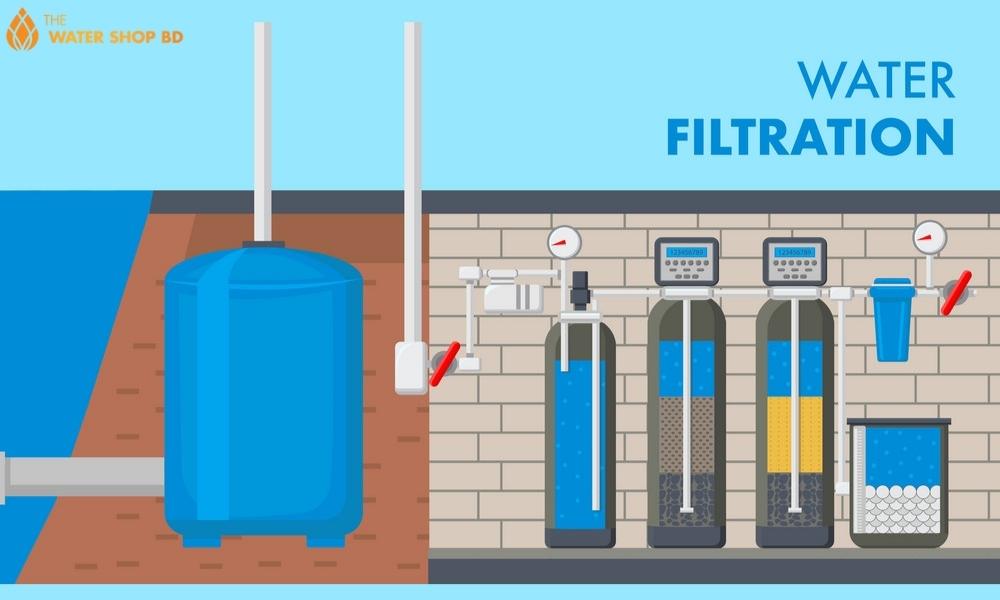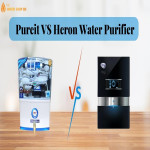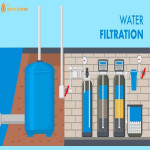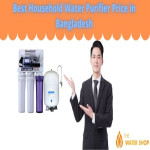Drinking clean water is necessary for keeping good health. These days, it might be challenging to locate pure, clean, and safe drinking water. Despite it having no flavor or scent, water contains helpful minerals that are essential for the body's proper functioning. Population increase, industrialisation, and environmental degradation are some of the causes of this.
According to this situation, it is even more important for us to be aware about available goods and water filtering techniques in order to ensure the quality of our drinking water. Water naturally contains a number of minerals that are important for human health but may also cause a number of diseases if taken in excess.
Equally important to having access to a water source is having the tools necessary to filter and purify water for consumption. While camping, trekking, or travelling abroad, a lot of the water may have impurities that damage its portability and cause serious disease if drunk. It's crucial that the water is adequately filtered in order to make it safe.
Using a portable water filter to purify water is among the simplest and most practical ways to do so. By removing impurities like particles, bacteria, viruses, and parasites, among other pollutants, these water filters assist in the purification and decontamination of water.
What to do in case of emergency
Sometimes after a disaster such as water main break, flood, hurricane- you may not be able to use your purifier. In this situation you should know how to personally filter the water.
- Avoid drinking, washing dishes, brushing your teeth, washing and preparing food, washing your hands, making ice, or making infant formula using water that you know or believe to be dangerous.
- When using water for drinking, cooking, or personal hygiene, use treated, boiled, or bottled water.
- For advice on boiling or treating water in your region, consult the state, municipal, or tribal health agency.
- Never utilize water that has come from your home heating system's boilers or radiators. Locate out where you might potentially find additional, safe water sources both within and outside of your house.
Read Also: Is It Safe To Drink From A Water Filter?
Ways to personally filter your water
1. Boiling
You should boil your water if you don't have access to clean bottled water to make it drinkable. When a person doesn't have access to clean, treated water, boiling is the most effective way to purify the water. When water hits its boiling point of 212 F, many species cannot live. In fact, no organism in the water will live for more than 30 minutes if the temperature is above 160 F.
If the water seems cloudy, filter it through a clean cloth or if possible then a coffee filter. And if none of them is possible then let it settle for a little bit. Boil the water for 1 min or depending on the height 3 mins. Then let it cool down. After it’s cool, store it in a clean sanitized bottle.

Pouring hot water from one container to another and letting it rest for a few hours or adding a pinch of salt for every quart or liter of boiled water can also help to enhance its bland flavor.
In the case of some kind of biological contamination, boiling water renders it safe to consume. Simply by bringing a batch of water to a boil for a few minutes, you may eliminate germs and other organisms from it. However, certain contaminants may be filtered out more quickly than others. Lead is one of these.
2. Disinfect
If boiling is not an option and you don't have access to safe bottled water, you can disinfect tiny amounts of water using chemicals like chlorine dioxide pills, iodine, or unscented home bleach to make it safe to drink.
Most hazardous or disease-causing viruses and bacteria can be killed by disinfectants, although most disinfectants are less successful than boiling in killing more virulent microorganisms. But if the water has radioactive material then one should’t use disinfectant cause it will be undrinkable.

One of the very common disinfectants is bleach. There are many concentrations of bleach. Before you begin disinfecting water, check the label of the bleach you're using to determine its concentration. When disinfecting with bleach, read the instructions first. After giving bleach, stir the mixture well. Before drinking it, let it sit for at least 30 minutes. Clean, sterilized containers with tight closures are ideal for storing the cleaned water.
Water treatment pills can be used to disinfect water if you don't have access to clean bottled water. In addition to other nations, campers and hikers enjoy using these tablets. They come in various sizes and are designed to treat particular volumes of water.
3. Filter
Things which a disinfectant can not remove, many portable filters can remove those very easily. Also portable water filters come in handy when you are hiking ir travelling If you are picking a portable water filter-

- Choose one with absolute pore sizes that are tiny enough to filter out parasites, ideally 1 micron or less. The majority of portable filters do not eliminate germs or viruses from water.
- When utilizing your water filter, be sure to carefully read and adhere to the manufacturer's instructions.
- To remove any viruses and germs, disinfect the filtered water by adding a disinfectant such iodine, chlorine, or chlorine dioxide.
They are the best for purifying water when engaging in activities like camping, hiking, or traveling because of their often modest sizes, which can be conveniently carried into a backpack. Additionally, due to their effectiveness and simplicity, they are a crucial part of the majority of army kits and emergency aid kits. The aforementioned benefits of portable water filters make them a must for everyone, especially for people who engage in outdoor activities often.
Basically personal water filtrations are for when you don’t have access to purified water but it’s not exactly healthy considering no matter how many ways you can filter water, it can never be better than the purifier water. The water purifiers have the membrane which a regular water filter doesn’t have. That’s why they can get rid of the waterborne pathogens easily.
So in general, personal water filtration system isn't safe and effective but it helps in times.











